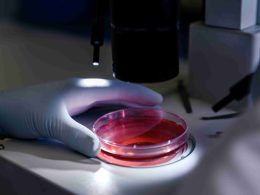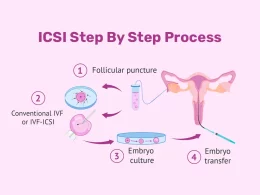The Growth of Personalized Nutrition: Tailoring Diets to Individual Needs
In recent years, the field of nutrition has undergone a significant transformation, driven by advances in technology, genetics, and a deeper understanding of individual health. This revolution is encapsulated in the concept of “Personalized Nutrition,” which aims to tailor dietary recommendations to the unique needs of each individual. This approach marks a departure from the one-size-fits-all dietary guidelines that have dominated nutritional advice for decades.
What is Personalized Nutrition?
Personalized nutrition is an innovative approach that customizes dietary plans based on an individual’s genetic makeup, lifestyle, health status, and even microbiome composition. Unlike traditional dietary guidelines that provide broad recommendations, This type of nutrition considers the unique characteristics of each person to optimize health outcomes.
This concept is rooted in the understanding that no two individuals are alike. Factors such as age, gender, genetics, metabolic rate, and even gut bacteria can influence how our bodies respond to different foods. Personalized nutrition seeks to address these variations by providing tailored dietary advice that can improve health, prevent disease, and enhance overall well-being.
The Science Behind Personalized Nutrition
The foundation of this nutrition lies in the fields of genomics, metabolomics, and microbiomics. Genomics involves the study of an individual’s genetic code, which can reveal predispositions to certain health conditions and how the body metabolizes various nutrients. Metabolomics examines the unique chemical fingerprints left behind by metabolic processes, offering insights into how different foods affect an individual’s metabolism. Microbiomics focuses on the gut microbiome, the complex community of microorganisms living in our digestive tract, which plays a crucial role in digestion, immunity, and overall health.
Advancements in these areas have led to the development of sophisticated tools and technologies that can analyze an individual’s genetic information, metabolic profile, and gut microbiome composition. These analyses can provide valuable insights into how an individual processes different nutrients, their risk of developing certain diseases, and how their diet can be optimized for better health outcomes.

Benefits of Personalized Nutrition
- Improved Health Outcomes: It can help individuals achieve better health outcomes by tailoring dietary recommendations to their specific needs. For example, someone with a genetic predisposition to high cholesterol may benefit from a diet low in saturated fats, while someone with a risk of developing diabetes may need to focus on managing their blood sugar levels through diet.
- Disease Prevention: By identifying genetic predispositions and metabolic tendencies, it can help prevent the onset of chronic diseases. Tailored dietary recommendations can address risk factors before they develop into more serious health conditions.
- Enhanced Weight Management: It can also be effective in weight management. By understanding an individual’s metabolic rate and how their body responds to different foods, personalized dietary plans can help individuals achieve and maintain a healthy weight.
- Optimized Athletic Performance: Athletes can benefit from this by receiving dietary recommendations that enhance their performance and recovery. Tailored nutrition plans can ensure that athletes are getting the right nutrients to support their training and competition goals.
- Better Digestive Health: It can improve digestive health by addressing imbalances in the gut microbiome. By analyzing an individual’s gut bacteria, personalized dietary recommendations can promote a healthy balance of microorganisms, which can improve digestion and overall health.

Challenges and Considerations
While this holds great promise, it is not without its challenges. One of the primary obstacles is the complexity and cost of genetic and metabolic testing. These tests can be expensive and may not be accessible to everyone. Additionally, interpreting the results of these tests requires specialized knowledge and expertise, which may not be readily available to all healthcare providers.
Another challenge is the need for more research to fully understand the interactions between genetics, metabolism, and diet. While significant progress has been made, there is still much to learn about how these factors influence health and how personalized nutrition can be most effectively implemented.
Privacy and data security are also important considerations. The collection and analysis of genetic and metabolic data raise concerns about how this information is stored, shared, and used. Ensuring that individuals’ data is protected and used ethically is crucial to the success of personalized nutrition.
The Future of Personalized Nutrition
Despite these challenges, the future of personalized nutrition looks promising. Advances in technology and research are making genetic and metabolic testing more accessible and affordable. As our understanding of the complex interactions between diet, genetics, and health continues to grow, personalized nutrition will become increasingly precise and effective.
The integration of personalized nutrition into mainstream healthcare is also on the horizon. Healthcare providers are beginning to recognize the value of tailored dietary recommendations and are incorporating personalized nutrition into their practice. This shift has the potential to transform healthcare by providing more effective and individualized care.
Moreover, the rise of digital health platforms and mobile applications is making personalized nutrition more accessible to the general public. These platforms can provide personalized dietary recommendations based on user input and data, making it easier for individuals to follow tailored nutrition plans.
Conclusion
Personalized nutrition represents a significant advancement in the field of nutrition, offering the potential to improve health outcomes, prevent disease, and enhance overall well-being. By tailoring dietary recommendations to the unique needs of each individual, personalized nutrition addresses the limitations of traditional one-size-fits-all dietary guidelines.
While there are challenges to overcome, the future of personalized nutrition is bright. Advances in technology, research, and healthcare integration are paving the way for more precise and effective dietary recommendations. As personalized nutrition becomes more accessible and widely adopted, it has the potential to revolutionize the way we approach diet and health, ultimately leading to a healthier and more personalized future for all.











